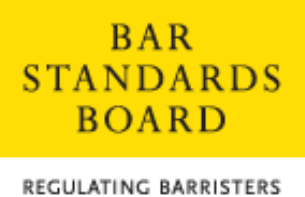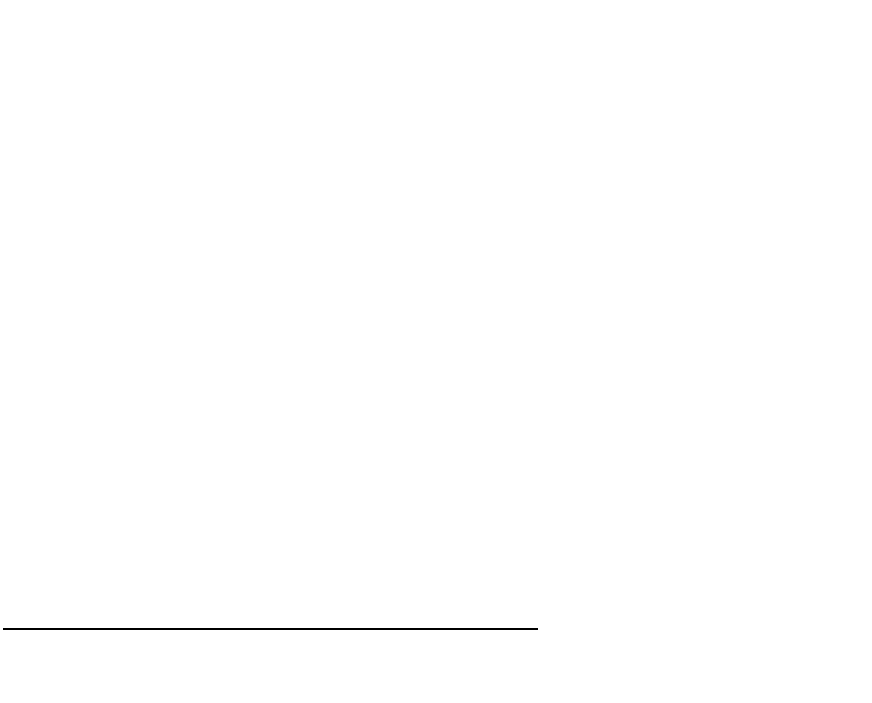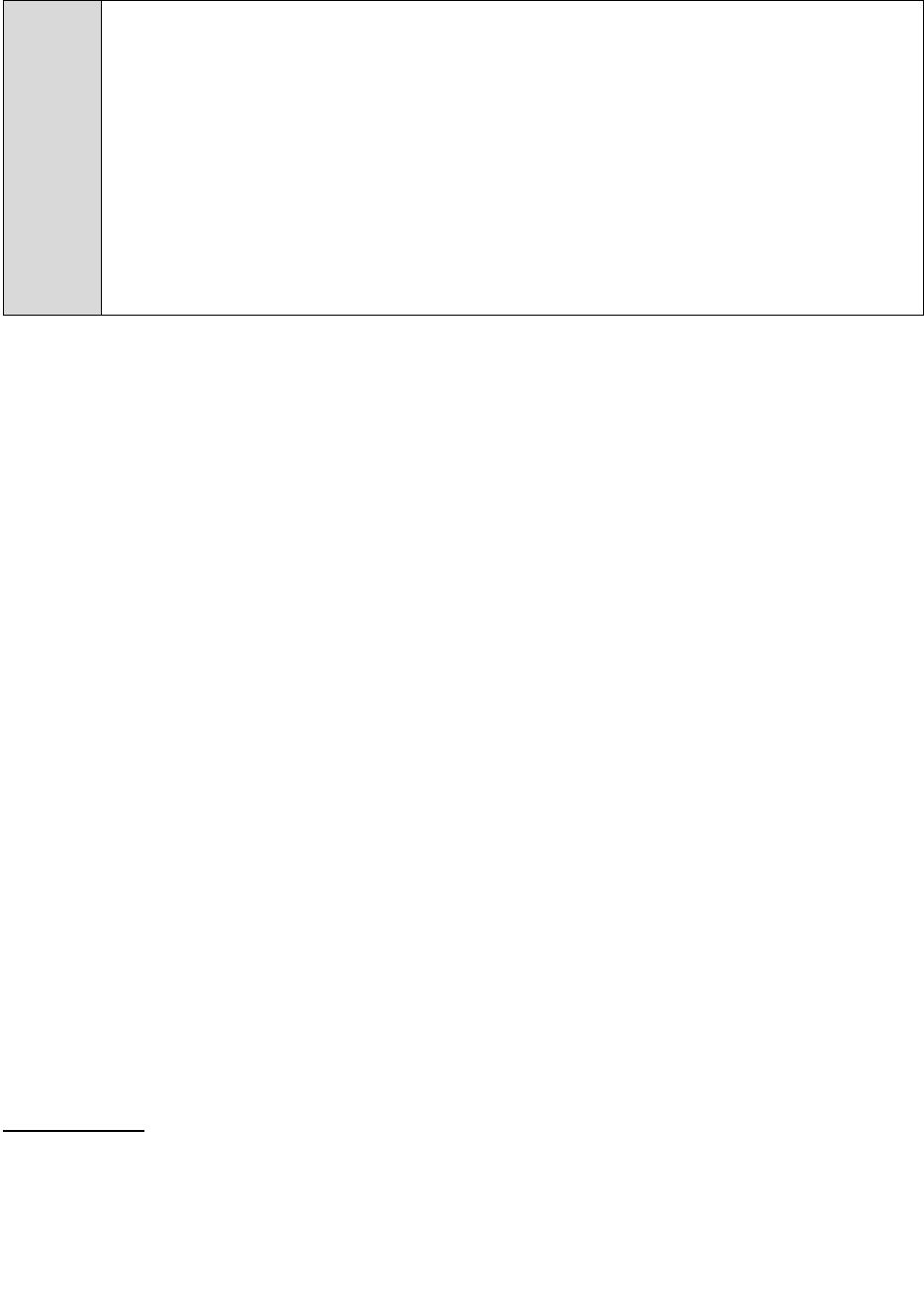
Guidelines for determining if a person is fit and proper
to become a practising barrister
March 2019
CONTENTS
Introduction ..................................................................................................................... 3
General Principles ........................................................................................................... 4
The ICC’s authority in the event a matter which calls into question an individual’s fitness
to practise as a barrister is proved .................................................................................. 5
Category 1 – Criminal offences ................................................................................... 6
Category 2 – Other behaviour ..................................................................................... 6
Category 3 – Academic history ..................................................................................... 7
Category 4 – Regulatory history .................................................................................. 7
Annex 2 – Guidelines on decision making ....................................................................... 8
Evidence ..................................................................................................................... 8
Assessment of relevant information ............................................................................. 8
Criminal offences ......................................................................................................... 9
Other behaviour ......................................................................................................... 14
Financial evidence ..................................................................................................... 15
Academic history ....................................................................................................... 16
Regulatory history ..................................................................................................... 17

3
Introduction
1. This statement of principles and guidelines is written pursuant to rule Q6.2 in the
Bar Standards Board (BSB) Handbook, which states:
The BSB shall set out in writing:
• The requirements to be met by an Inn in admitting student members and
Calling individuals to the Bar;
• The manner in which an Inn shall assess whether such individuals are fit
and proper.
2. This document should be read alongside the BSB Handbook and the
Memorandum of Understanding (the MOU) to which this document is attached.
This document refers to either an Inn or the Inns Conduct Committee (ICC). In
some circumstances, a requirement may be applicable to either or both Parties. In
such circumstances, we refer to Inn/ICC.
3. This document has been developed by the BSB, in consultation with Council of the
Inns of Court (COIC), the ICC and each of the Inns of Court. Its purpose is to set
out the BSB’s guidelines for the assistance of the Inns of Court and the ICC in
determining whether persons are fit and proper to become a practising barrister.
Additionally, the Inns and the ICC shall ensure that their own rules are drafted with
reference to the guidelines, including any activities for admitting individuals to an
Inn, overseeing conduct matters whilst a student member and Calling individuals to
the Bar. These guidelines are intended to promote the use of good practice in
processing and determining whether a person is fit and proper. Setting out these
guidelines is intended to promote proportionality, consistency and transparency in
decision-making. These guidelines are also intended to allow applicants, students
and other interested parties to be aware of and, as required, to understand what
factors will be considered by the Inns/ICC, in order to assist individuals with any
declarations they are required to make and preparations for any hearings.
4. This document contains several annexes which are integral to the guidelines.
Annex 1 considers the type of conduct which is relevant in determining whether an
individual
1
is a fit and proper person to become a practising barrister. Annex 2 sets
out how the ICC will approach previous criminal convictions and cautions, and any
other factors which may call into question whether an individual is fit and proper.
5. In line with the MOU, the ICC will have special powers to act when determining
whether a person is a fit and proper person. These are set out below.
6. In line with paragraph 7 of the MOU, the Parties agree to utilise reviews to discuss
any proposals for making amendments to these guidelines. Such proposals may
be made by any of the Parties.
7. The four Inns of Court and the ICC, where applicable, are required to determine:
• At admission to an Inn and at Call to the Bar, whether a person is a fit and
proper person to practise as a barrister;
1
This includes applicants to an Inn, student members and those seeking Call to the Bar.

4
• In the case of a student member of an Inn, what sanction it is appropriate to
impose if their conduct calls into question whether they are a fit and proper
person; and
• Reviews or appeals of such decisions taken.
8. This document is to be made publicly available on the websites operated by the
BSB, Bar Tribunal and Adjudication Service (BTAS)
2
and each of the Inns. It is also
freely available in hard copy from the ICC Administrator, upon request.
General Principles
9. To be a fit and proper person to practise at the Bar, that person is expected to be
capable of upholding the Core Duties which underpin the behaviour expected of
barristers. The Core Duties are:
CD1 - You must observe your duty to the court in the administration of justice.
CD2 - You must act in the best interests of each client.
CD3 - You must act with honesty, and with integrity.
CD4 - You must maintain your independence.
CD5 - You must not behave in a way which is likely to diminish the trust and
confidence which the public places in you or in the profession.
CD6 - You must keep the affairs of each client confidential.
CD7 - You must provide a competent standard of work and service to each
client.
CD8 - You must not discriminate unlawfully against any person.
CD9 - You must be open and co-operative with your regulators.
CD10 - You must take reasonable steps to manage your practice, or carry out
your role within your practice, competently and in such a way as to achieve
compliance with your legal and regulatory obligations.
10. By assessing whether an individual is a fit and proper person in accordance with
the Core Duties, the following outcomes will be achieved:
Outcome 1 - if you are a barrister, you are a fit and proper person; and
Outcome 2 - you act so that clients, and the wider public, have confidence
that you are a fit and proper person and uphold the reputation of the
profession.
11. If an Inn, after becoming aware of a conduct matter, considers that the matter does
call into question whether the individual is a fit and proper person to become a
practising barrister, the matter must be referred to the ICC.
2
See: http://www.tbtas.org.uk/policies-guidance-and-publications/rules-2/rules-for-the-inns-conduct-
committee/
5
12. In determining cases before it, the ICC will not re-open the decisions of other
relevant bodies. The ICC shall treat a criminal conviction or caution of an
individual, which has not been set aside on appeal or otherwise, as sufficient
evidence of the commission of the offence in question. For the avoidance of doubt,
a finding of misconduct by a regulatory, professional, or educational body
exercising their regulatory, disciplinary or educational jurisdiction will be treated as
sufficient evidence of the commission of the offence in question. However, the ICC
may give such weight to that offence as it considers reasonable in all the
circumstances.
13. The Inns/ICC, and in particular its members who constitute hearing panels to hear
matters referred to them, should refer to Annexes 1 and 2 in considering each
matter and ensure each matter is considered on a case by case basis.
14. In addition, in determining what, if any, sanction should be applied in the event that
conduct which calls into question an individual’s fitness to become a barrister is
found proved, the guidelines in Annex 2 should be considered.
15. A person whose application for admission to an Inn has been rejected on the
ground that that person is not a fit and proper person to become a practising
barrister, or who has been expelled from an Inn because of an academic or
disciplinary offence, may not apply for admission to an Inn unless a period of at
least five years (or such other period as the BSB may determine in the particular
case) has elapsed from the date of such rejection or expulsion.
The ICC’s authority in the event a matter which calls into question an individual’s
fitness to practise as a barrister is proved
On application for admission to an Inn
16. If, having given due regard to these guidelines, the ICC finds an individual’s
conduct does call into question whether they are a fit and proper to practise as a
barrister, it shall direct the Inn not to admit the individual. The ICC shall inform the
individual as to their right to appeal and the process for doing so.
At any point as a student member
17. If, having given due regard to these guidelines, the ICC finds a student’s conduct
does call into question whether they are a fit and proper person, it may:
• Advise the student as to future conduct; or
• Reprimand the student; or
• Order that the student’s Call to the Bar be postponed for a specified period;
or
• Direct that the student be expelled from the Inn (in which case the Inn must
expel the student).

6
Annex 1 – Fitness to become a practising barrister
1. To be eligible for admission to an Inn and Call to the Bar, an individual must be a fit
and proper person to become a practising barrister. The test for determining if a
person is a “fit and proper person” is that they are capable of upholding the Core
Duties which underpin the behaviour expected of barristers.
2. There are a number of factors which could result in an individual not being
considered fit and proper. These are separated into the following categories:
Category 1 – Criminal offences
Category 2 - Other behaviour
Category 3 – Academic history
Category 4 – Regulatory history
Category 1 – Criminal offences
3. The BSB requires applicants who are seeking admission, readmission or Call to
the Bar to disclose criminal records in accordance with the Rehabilitation of
Offenders Act 1974 (Exceptions) Order 1975 ('the Exceptions Order') as amended
by the Rehabilitation of Offenders Act 1974 (Exceptions) Order 1975 (Amendment)
(England and Wales) Order 2013.
4. Criminal records disclosures are required at two separate points: at the point of
admission to an Inn, via self-disclosure; and at Call to the Bar
3
, via a Standard
DBS check. The DBS check will form part of the Fit and Proper Person checks
required prior to Call to the Bar.
Category 2 – Other behaviour
5. Individuals should disclose any other matters (other than protected
convictions and cautions), which might reasonably be thought to call into
question their fitness to become a practising barrister.
6. The Inns/ICC will take into consideration if the individuals have:
6.1. been responsible for behaviour:
• which is dishonest;
• which is threatening, violent or harassing;
• where there is evidence of discrimination towards others;
6.2. misused their position to obtain advantage;
6.3. misused their position of trust in relation to a vulnerable person; and/or
3
The control used by the BSB, and administered by the Inns, to determine whether someone is a fit and proper person to
become a member of the profession.

7
6.4. been responsible for other forms of behaviour which demonstrate
that they cannot be relied upon to discharge their regulatory duties as
a barrister.
7. Records of an individual’s social media activities and publicly made comments
may also be considered when assessing whether they are a fit and proper
person. Comments designed to demean or insult are likely to diminish public
trust and confidence in the profession and could be seen to be inconsistent
with the Core Duties.
8. Individuals must declare if they have been declared bankrupt, entered into an
Individual Voluntary Agreement (IVA), or have had a Relevant Order made
against them.
9. A “Relevant Order” is an order which calls into question whether an individual is a
fit and proper person to become a practising barrister, and would include, but is not
limited to: a monetary judgment of a Court or tribunal; disqualification from being a
director; a sexual offences notification requirement; a Community Protection Notice
(CPN) or Criminal Behaviour Order (CBO); a non-molestation order; a financial
reporting order; a sexual offences prevention order; disqualification from working
with children; a football banning order; or a serious crime prevention order.
10. Any disclosures regarding treatment or a diagnosis for a condition (including
an addiction to drugs or alcohol) which means the individual may pose a risk
to any member of the public or which may impair their judgment as a
practising barrister, will not automatically result in an application being
refused. The Inns/ICC will consider the disclosures in light of the two
outcomes set out in paragraph 10 of the introduction and any evidence
provided.
Category 3 – Academic history
11. The Inns/ICC should take into consideration any previous academic or
disciplinary findings against the individual by a higher education institution,
particularly deliberate action which amounts to plagiarism or cheating to gain
an advantage for themselves or others.
Category 4 – Regulatory history
12. The Inns/ICC will consider any previous or pending supervisory action,
complaint, investigation, disciplinary proceedings or disciplinary findings
against the individual by a professional or regulatory body, including in any
jurisdictions outside England and Wales. This will also include whether they
have:
• failed to disclose information to a regulatory body when required to do
so, or have provided false or misleading information;
• been refused registration by a regulatory body; and/or
• failed to comply with the reasonable requests of a regulatory body.

8
Annex 2 – Guidelines on decision making
Evidence
1. Where a disclosure has been made either via self-disclosure or via a DBS
report, the ICC will consider all of the evidence and may consider the following
evidence in particular, where relevant:
1.1. references from at least two independent professionals who know the
individual well, which must include a signed statement that the referee
knows the purpose for which the reference is provided. Beyond the
requirement for a signed statement as to the purpose of the reference,
there is no requirement as to what the reference should contain. However,
applicants and students should be aware that a reference which, on its
face, records (a) the referee’s awareness of any matters disclosed which
might suggest that the applicant or student is not a fit and proper person
and (b) the referee’s evaluation of those matters when reaching the
conclusion stated in the reference, may be accorded greater weight by the
ICC;
Criminal offences
1.2. where appropriate and/or available, an independent report relating to the
event(s), such as sentencing remarks following a criminal conviction;
1.3. evidence of any rehabilitation (e.g. probation reports, references from
employers and/or tutors);
1.4. the individual’s attitude towards the event(s);
Other behaviour (including financial)
1.5. credit check information (in relevant circumstances);
1.6. actions the individual has taken to clear any debts, satisfy any judgments
and manage their finances;
Academic history
1.7. the extent to which the individual was aware of the rules and procedures
governing the reference of material, or the use of group work or
collaborative material; and
1.8. the extent to which the individual could reasonably have been expected to
realise that the offence did not constitute legitimate academic practice.
2. The onus is on the individual to provide any evidence they consider necessary
and/or appropriate. The Inns/ICC reserve the right to carry out their own
investigation and/or refuse the application/Call if adequate evidence is not
forthcoming.
Assessment of relevant information
3. The Inns/ICC will assess any evidence (including any evidence provided by the
individual) to assist their decision of whether the individual is a fit and proper
person. The following factors will also be considered (where relevant):

9
• the individual’s age at the time of the incident(s);
• the length of time which has passed;
• whether it was an isolated incident;
• whether there has been more than one incident;
• whether the incident(s) were linked to professional practice;
• whether use of drugs or alcohol was a factor; and
• whether the matter was disclosed to the individual’s employer, educational
establishment and/or regulator.
Criminal offences
4. If an individual discloses criminal conduct, the ICC must consider the mandatory
three-stage assessment, as set out below:
Stage 1 - The classification of the offence (type of offence and the sentence
imposed) or order (type and seriousness of the order and restrictions imposed);
and
Stage 2 - The length of time which has passed since the sentence or restriction
ended; and
Stage 3 - Consideration of any other factors, where applicable.
5. This staged assessment will assist the ICC in considering the disclosures of each
individual on a case by case basis, along with a range of factors These factors may
include those set out in paragraph 3 of this Annex, in addition to the:
• Nature;
• Seriousness;
• Pattern;
• Circumstances at the time; and
• Attitude towards the events.
Stage 1 - Classification of the offence or ancillary order
6. The table below classifies offences which may call into question whether the
individual is a fit and proper person to become a barrister.
7. The starting point will be that a person will not be admitted to an Inn while subject
to any portion of a custodial sentence, whether immediate or suspended.

10
Class 1
• Murder;
• Inclusion on the Violent and Sex Offender Register;
• Wounding/GBH with intent;
• Rape/assault by penetration;
• Association with terrorism;
• Custodial sentence by reason of dishonesty, fraud, perjury, perverting or
obstructing the course of justice, assisting an offender, intimidation, revenge
and/or bribery;
• Supply/possession with intent to supply/production/importation of any Class A
drug; or
• Unlawful use of a firearm/imitation firearm.
Class 2
• Conviction by a court of a criminal offence not falling within Class 1 but which
the ICC considers might have an impact on whether the individual is capable of
discharging the Core Duties;
• Conviction by a court of more than one criminal offence (these could be less
serious offences when considered in isolation but taken more seriously
because of frequency and/or repetition);
• Violence not involving deliberate intent to cause serious physical harm;
• Serious Public Order offences;
• Possession of Offensive weapon/Bladed article;
• Firearms offences not in Class 1 (above);
• Possession of Class A drugs;
• Possession, production or supply of non-Class A controlled drugs;
• Obstructing the course of justice;
• Behaviour showing signs of discrimination towards others;
• A pattern of increasingly serious behaviour (e.g. starting from a caution but
moving through to convictions);
• Sexual offences not in Class 1 (above);
• Financial, insolvency and company management offences requiring proof of
dishonesty; and
• Acceptance of a caution for an offence involving dishonesty.
Class 3
• Road traffic offences where endorsement obligatory but not requiring
mandatory disqualification;

11
• Financial, insolvency and company management offences not requiring proof of
dishonesty; and
• The individual has more than once:
i. Accepted a caution from the police for an offence not involving dishonesty
ii. Received a Fixed Penalty Notice from the police, excluding motoring
iii. Received a final warning or reprimand from the police (under 18s only)
and/or
iv. Received a referral order from the courts (under 18s only).
Class 1
8. In the case of offences in Class 1, the offences are extremely serious and, subject
to stages 2 and 3, and any evidence provided, will normally result in a refusal of
admission or expulsion.
Class 2
9. In the case of offences in Class 2, they can range from the extremely serious to the
less serious. The ICC will use the assessment grid in stage 2, the considerations
under stage 3 and any other evidence submitted to exercise their independent
discretion to determine the appropriate outcome.
10. The decision which the ICC considers appropriate could therefore range (in the
case of an individual) from refusal of admission, to admission with or without time
delay and refusing the individual being Called. For example, a first-time offence for
drink-driving only will not necessarily lead to non-admission or expulsion. A more
serious view will be taken of a conviction involving a high blood alcohol limit, an
element of personal injury being caused, dangerous driving or where it is
accompanied by associated convictions (e.g. leaving the scene, driving while
disqualified).
11. The ICC will have regard to mitigating circumstances put before it. In particular, a
compelling emergency situation could be strong mitigation.
Class 3
12. As a starting point, a person who has committed a Class 3 offence will normally be
admitted or permitted to proceed to Call (possibly after a specified period) or to
continue their membership of their Inn.
Guidance note
13. Police can only issue a caution if there is evidence that the individual is guilty of an
offence and they admit to committing the offence. Therefore, by accepting a
caution, the individual has made an admission of guilt.
14. No admission of guilt is required to receive a fixed penalty notice, and by paying
the penalty, a recipient discharges liability for conviction for the offence.

12
15. If an offence has been disclosed which is not listed within the classification grids
above, the Inns/ICC will align it with other similar offences which have been listed
within Class 1, 2 or 3.
Stage 2 - The length of time which has passed
16. The below assessment grid sets out the starting point for the ICC in considering
the length of time which has passed since the sentence restrictions ended and the
type of caution, warning, fine, discharge or sentence the individual received.
4
This
grid should be used for any Class of offence/order, whether 1, 2 or 3.
Actual sentence/disposal
(non protected)
Caution, warning,
community resolution,
absolute/conditional
discharge,
admonishment
Fine,
community
disposal
Suspended
sentence
Imprisonment
Time since sentence or
restriction ended
0 to < 12
months
CAF
CAF
Refuse
Refuse
> 12 months to
< 2 years
No sanction*
CAF
Refuse
Refuse
>2 years to
< 4 years
No sanction*
No sanction*
CAF
Refuse
>4 years to
< 7 years
No sanction*
No sanction*
CAF
CAF
>7 years
No sanction*
No sanction*
No sanction*
CAF
CAF = Consider Additional Factors – See stage 3
< = less than or equal to
4
The use of a “starting point” is intended to guide the ICC in undertaking its assessment of an applicant’s
particular circumstances.

13
>= greater than
* If the individual has ever received a conviction resulting in imprisonment of longer than
48 months, regardless of the time which has passed since the end of the sentence, they
will always fall within the CAF category.
No sanction
17. If a matter falls within a ‘no sanction’ cell above, the expectation is that the ICC will
not normally make a finding or impose a sanction against the individual. However,
whilst the ICC will not normally look for information about a named individual, they
reserve the right to consider information which is provided to them about the
offence, even if the individual would otherwise fall within the ‘no sanction’ cell.
Refuse
18. If a matter falls within a ‘refuse’ cell above, the expectation is that the ICC will
normally refuse an individual admission or Call or expel a student from the Inn. As
above, the ICC may consider information provided to them which is relevant to the
circumstances, even if the individual would otherwise be refused or expelled.
Imprisonment
19. Where an individual has received a prison sentence, the time since sentencing
restrictions ended will be the number of months or years which have passed from
the release date or licence period (where applicable). It is not from the date when
the individual was sentenced or when the offence, or offences, were committed.
Suspended sentences
20. In the case of suspended sentences, the individual will be deemed to be free of
sentence restrictions when the period of suspension expires. If the custodial
sentence is activated, then it will be considered on the same grounds as any
immediate custodial sentence.
Community disposals
21. In the case of community orders, community disposals and other similar sentences
undertaken in the community, the individual is considered free of sentence
restrictions at the end of the period of the order. If no date is given on the criminal
records check, the individual will be considered free of sentence restrictions 12
months after the date of sentence. If the individual can provide evidence from an
independent, verifiable source that the community disposal was discharged by the
responsible body at an earlier date, the ICC will treat that earlier date as the date
the individual was free from sentence restrictions.
Fines and other disposals
22. For fines, one day detention, cautions, warnings, community resolutions,
absolute/conditional discharges, and admonishments, the individual will be
considered free of sentence restrictions from the day after the sentence or disposal
was imposed.
Ancillary orders imposed by the criminal court
23. In addition to sentence, the criminal courts have the power to impose various other
orders which expire after the sentence that has been passed. These can include,

14
but are not limited to, a Sexual Offence Prevention Order, Football Banning Order
and Criminal Behaviour Order. The ICC will consider they type of order and
whether it is more appropriate in all the circumstances to calculate the end date for
sentence restrictions as running from expiry of the order rather than the sentence.
Motoring offences
24. Motoring offences that result in a criminal conviction must be disclosed, excluding
a fixed penalty offence under the Road Traffic Offenders Act 1988, an offence
committed in the United Kingdom or abroad which is dealt with by a procedure
substantially similar to that for such a fixed-penalty offence, or an offence whose
main ingredient is unlawful parking of a motor vehicle.
25. Motoring offences that do not result in a criminal conviction do not need to be
disclosed. The individual should disclose any disqualifications and offences
relating to a breach of a Court order (e.g. driving whilst disqualified).
Stage 3 - Consideration of additional factors for offences
26. The ICC will assess the circumstances of each individual matter. They will be
informed by a number of factors, including, but not limited to, the sentence
imposed, the age of the individual at the time of the offence and any mitigating or
aggravating facts and circumstances both of and since the offence (including the
individual’s attitude towards the offence). Examples have been included below:
Mitigating factors:
• Substantial passage of time since offending;
• Full disclosure of all facts at the earliest opportunity;
• Guilty plea and/or genuine remorse;
• Single offence, out of character;
• Good references as to good character over a long period;
• Personal progress since offending including significant voluntary work in the
community.
Aggravating factors:
• Recent offending;
• Reticence as to facts and circumstances;
• Contesting a trial and/or lack of remorse;
• Commission of multiple offences, whether on a single or more than one
occasion.
Other behaviour
27. A person found to have committed any act of dishonesty, not dealt with as a
criminal offence, should be prepared to be expelled or refused admission or Call.
Such dishonest conduct will include concealment of convictions, cautions or other
15
relevant matters in an application to join an Inn. Any past failure in making a
declaration to an Inn will necessitate a full explanation from the individual as to why
the failure occurred, in addition to the facts of whatever matter it was that should
have been declared. A person found to have misused their position for advantage
must similarly expect to be expelled or refused admission or Call.
28. Only where the conduct calls into question whether someone is a fit and proper
person but the conduct is fully explained and there is genuine remorse for the
dishonesty, will an alternative be considered. This may include, for example,
whether the individual was offered support from their Inn when completing an
admission declaration, given the challenges which may arise in accurately self-
disclosing. Such challenges might include the individual being advised to obtain a
copy of their police record under a subject access request, in order to discern
which cautions and convictions are protected and therefore should not be
disclosed.
29. All other non-criminal conduct will be considered on its particular facts, informed by
the general principles.
Financial evidence
30. In the case of individuals, bankruptcies and other arrangements with creditors
more than ten years old which have been discharged will not normally call into
question a person’s fitness to become a barrister.
31. In looking at cases where a person has been declared bankrupt (discharged or
otherwise) or who has entered into an IVA or other debt arrangement, the
particular circumstances will be examined. Factors in favour of such individuals will
include:
• Conduct not resulting in substantial financial harm to vulnerable creditors;
• Circumstances beyond their control which could not have reasonably
foreseen; and/or
• Honest attempts to repay creditors.
32. In contrast, the ICC shall be particularly concerned about those who appear to
have used the insolvency or an IVA or other debt arrangement in circumstances
where none of the factors identified in paragraph 31 are present in order to escape
the consequences of their own conduct. Evidence of dishonesty or unfair dealing
with others will strongly indicate that a person is not fit and proper to be a barrister.
Directors’ disqualification and other orders/injunctions limiting a person’s conduct
33. Where an order limiting a person’s conduct has been imposed, the ICC will first
consider what its view is as to the conduct (whether criminal or non-criminal) that
led to the imposition of the order and will make the appropriate decision as to the
person’s fitness, or whether the matter is serious enough to call into question an
person’s fitness to become a practising barrister and what action to take.
34. As a starting point, the ICC shall have consideration that:
• A person will not normally be admitted while subject to a court order limiting
their conduct;

16
• In such circumstances, admission will normally be delayed until at least
three years from the end of the order; and
• A person made subject to such an order whilst a student can normally
expect to be expelled. However, the ICC may also consider deferring Call.
Academic history
35. Academic misconduct encompasses various offences including plagiarism,
collusion, impersonation, exam room misconduct, falsification of results and
unethical research.
36. Unless there are exceptional circumstances, a person who has committed an
academic offence where there is significant, deliberate and dishonest conduct will
be refused admission to an Inn or expelled from the Inn and not permitted to
proceed to Call.
37. Exceptional circumstances may include where the finding does not amount to
cheating or dishonesty, e.g. incorrect referencing, or failure to attribute correctly, in
an essay or paper.
38. However, the ICC recognises that a range of conduct may be encompassed in a
finding of misconduct which can vary from one academic institution or course
provider to another.
39. Because of the variation in terminology between institutions and the potential
range of circumstances of academic offences, it is important that full disclosure be
made by the person of all facts relating to the conduct under review by the ICC
hearing panel. This will include all paperwork relating to that conduct, including all
records of hearings and determinations of the relevant academic institution, insofar
as they are available to the person.
40. In cases of exam room misconduct, an invigilator’s report should be requested,
where it is available. Since rules vary between institutions, a copy of the applicable
assessment regulations should also be provided.
41. For the same reason, it is important and in the interests of the individual, that their
fullest possible statement of facts and contentions should be made available in
advance of the ICC hearing.
42. BSB Authorised Education and Training Organisations (AETOs) must have policies
and procedures in place for academic and disciplinary misconduct and must,
following conclusion of any investigations, report misconduct to a student’s Inn.
43. Factors in favour of persons under consideration will include:
• A first offence (unless this was an instance of significant, deliberate
dishonesty);
• Defective citation (use of small amounts of text not properly referenced or
attributed) or minor instances of mutual assistance by students;
• Prompt and candid admission of guilt;
17
• Evidence that the institution failed to make the academic regulations known
to the student in advance of the offence;
• Inadvertent misconduct: for example, under some institutional regulations a
finding of collusion might be made irrespective of whether a student
granted access to their work. Similarly, a finding of exam room misconduct
might be made irrespective of whether unauthorised materials were actually
used;
• Circumstances/ mitigating evidence claims lodged at the institution
indicating stressors in the life of the student/ applicant.
44. Factors against persons under consideration include:
• Reproduction of large amounts of text without attribution or reference. Many
institutions will include a ‘Turnitin’ report which will include a similarity index.
This figure indicates the percentage of work that has been recognised in
other sources irrespective of whether it has been properly cited. Care
should be taken to distinguish source material that has been properly cited
from that which has not.
• Substantial and deliberate passing off of others’ work;
• Knowing collaboration or collusion;
• A second or subsequent offence;
• Denial of guilt or blaming another;
• Cases of impersonation are tantamount to fraud and will be treated as
automatically serious;
• Knowing obstinacy or failure to cooperate with the institution’s investigation.
45. In cases of collusion between two or more students, consideration will be given to
whether each should be required to appear separately before the ICC.
Regulatory history
46. In assessing an individual’s fitness, careful attention will be given if there is any
professional disciplinary finding or proceedings. Whilst the precise circumstances
of each case will be important, a finding of serious misconduct in another
profession will often prevent a finding that a person is fit and proper to become a
practising barrister. However, this may be mitigated in circumstances where the
individual received a rebuke, reprimand or warning about their conduct by a
regulatory body.
47. Where a matter is pending (by another body), a decision should not be made by
the Inns/ICC until they receive confirmation that the matter(s) has either been
concluded with no further action or the outcome of the matter is known.
